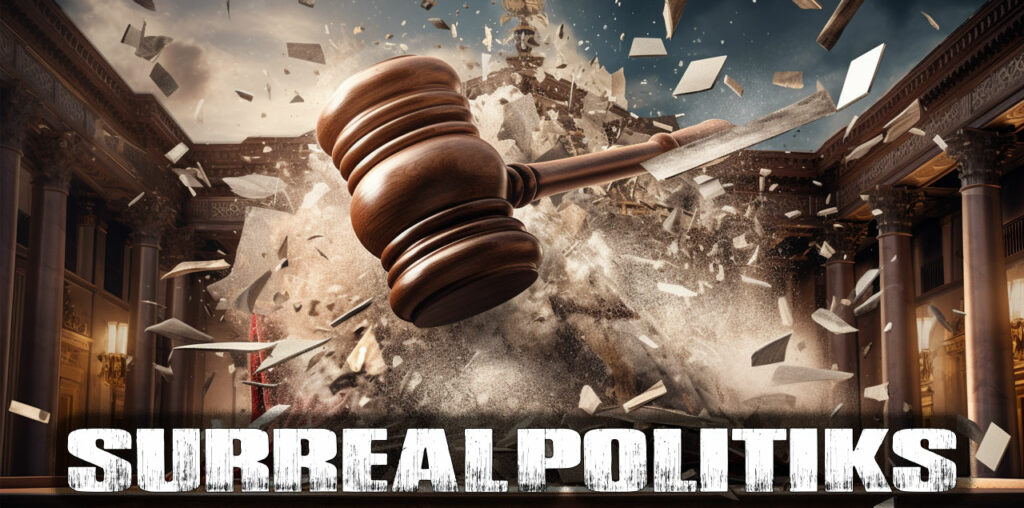
At the time of this writing, Ian Freeman, whom I interviewed for Episode 20 of this production, awaits sentencing in a Federal District Court in Concord, New Hampshire, for the crime of selling Bitcoin to willing and vetted buyers. Prosecutors are seeking a 20 year sentence and more than $3M in restitution, which it is worth noting, defies the recommendations of the pre-sentence investigation and the evidence presented at trial. Restitution is for victims, and there is no material dispute about whether Freeman victimized anyone. He did not, and even the prosecution does not argue that he did. Freeman’s customers lied to him when he asked if they were being coerced or asked to purchase the cryptocurrency by strangers. The strangers who were coercing and defrauding them, told them to deceive Freeman, and the prosecution simply asserts that Freeman should have somehow known this was the case, and lacking psychic powers, he should be held responsible for the fraud of others, whom the FBI has made no attempt to find.
Freeman is fortunate that the Judge dismissed one count of money laundering post-conviction, though the fact that this took place tells us much about our legal system.
Prosecutors charged Freeman with money laundering because an FBI agent posing as a drug trafficker purchased Bitcoin from one of Freeman’s vending machines miles away from where Freeman stood at the time. He did this after Freeman explicitly refused to transact with the agent, once the agent asserted his unlawful purpose. Since refusing to commit a crime is not a crime in most jurisdictions, the Judge dismissed the charge after the Jury had convicted him of it.
Of course, such blatant abuses by government are why pre-trial motions exist. The more charges a Defendant must defend against, the greater the burdens at trial, and the looser the rules of evidence become for the prosecution. Without the money laundering charge, the government could not have introduced evidence insinuating that Freeman was in league with drug traffickers, and since perceptions of character carry much weight in a Jury trial, fake accusations like this lend credence to other allegations.
The Court, knowing the circumstances of the allegation, refused to dismiss the charge pre-trial, and also at the close of the prosecution’s case. Only after Freeman was convicted by a Jury, did the Court intervene to dismiss the conviction for a crime Freeman plainly did not commit, and which the Judge knew in advance of the trial he had not committed.
So while Freeman is fortunate not to be facing an additional 20 years this morning, he is unfortunate to be facing sentencing based on the verdict of a Jury proven willing to convict him of a crime he did not commit, before a Judge proven willing to deny him a fair trial, against prosecutors proven willing to ignore investigators and posit assertions not supported by fact.
About a four hour drive South, Donald Trump is attending a fraud trial in New York. This is a fraud trial in every respect. Trump is accused of fraud, and the trial is just such a crime itself.
Though Freeman, myself, and many others, including Trump himself owing to the civil verdict against him stemming from E Jean Carroll’s fake rape lawsuit, demonstrate the limited utility of a Jury, Trump will enjoy not even those meager benefits. This trial will be decided by a Judge. That same Judge has already found Trump liable for fraud, granting a motion for summary judgement by the New York Attorney General, Letitia James.
James ran on a platform that she would “Get Trump” and in pursuit of “racial justice” set real criminals loose on the street. She may be a liar, but at least she keeps her campaign promises.
Her office is seeking the dissolution of the Trump Organization through the revocation of their “business certificate” which amounts to what has been called a “corporate death penalty” as well as a $250 Million fine.
On the other side of the country, Robert Rundo awaits trial at a Federal Detention Center in Los Angeles. Rundo stands accused of conspiring to riot, and despite his charge being dismissed as unconstitutional by a District Court Judge years ago, FBI agents tracked him to Romania and extradited him here to face trial anyway.
This small sampling of abuses, and my own adventures in legal land, demonstrate powerfully a simple truth.
Letitia James this morning uttered a phrase all too familiar in a press conference, “No one is above the law”. This oft cited Democrat catch phrase stands in some contrast to the havoc set loose on our Country by those who consider illegal immigration to be among our greatest strengths, and whom warned of our country becoming a “Banana Republic” if Hillary Clinton were to be prosecuted for some portion of the many crimes she committed. In 2016 we were to believe that prosecuting one’s political opponents was verboten, whatever the merits, but in 2023 it is the obligation of all decent people to prosecute exclusively their political opponents, while murderers, rapists, carjackers, looters, and arsonists skip gleefully through a lawless hellscape.
So if Letitia James and those in league with her assert to believe that nobody is above the law, and yet she does not believe that criminals ought to be held to account, one might presume this disparity in word and deed were just one of many Democrat lies.
By any measure, this would be a safe assumption. With as much reliability as one might aspire to set a watch to, one might safely organize their life around the notion that if a Democrat is speaking, their purpose is to deceive. But this is hardly the only reasonable interpretation of the apparent disparity between word and deed.
Suppose James et al really do believe that nobody is above the law. What then?
She might presume we all stand in some other directional relation to it.
Namely, beneath it.
And you might reasonably conclude precisely this if you have ever been a crime victim. Forget about the fake prosecutions and lawsuits for a moment. At least with regard to these you can in most cases avoid them by not challenging those in power. While challenging those in power in an alleged democracy ought not be punishable by conjured legal allegations, that is at least something most people can sanely organize their lives around.
What is perhaps more frightening than these is what precedes them, and has been accepted as an uncontroversial fact of our legal landscape. The government long ago decided that they have “no duty to protect” and there is “no right per se to have a case brought”. You are obligated to pay for Courts, Prisons, and Police. You are obligated to respond to subpoenas and submit to the jurisdiction of those elements of our legal apparatus. That same apparatus purports no obligation to you at all.
Rob Rundo is accused of conspiring to riot, because he allegedly went to places where violent criminals were expected to commit violent crimes. He is accused of acting with the intent of confronting those criminals, and to mete out his own justice, after having witnessed countless incidents where Trump supporters and other decent people were violently attacked without provocation. Having witnessed, time and again, that those criminals went unpunished, he and his friends are accused of trying to help those people.
Had police declared that those criminals were not above the law, had the prosecutors sought harsh sentences for them, had the Courts imposed some portion of those recommendations, there might have been no Rise Above Movement. You likely would never have heard the name Rob Rundo, or for that matter, Christopher Cantwell.
Trump stands accused of overestimating the values of his properties. That seems an unlikely thing for a man who pays property taxes to do, but let us assume the accusation is true. Suppose that, as alleged, Trump did this for decades and so long as he kept showering Democrats with campaign contributions instead of insults, nobody seemed to mind, least of all the banks who gave him the loans on that basis and were able to collect their interest when he paid them on time.
Would a New York real estate developer know if such practices were common in his jurisdiction? Would he be put out of business if his competitors engaged in this practice while he stubbornly refused to do anything so disreputable? Quite certainly, but because we are all beneath the law instead of above it, one must do what one must do to compete in a lawless environment, and as soon as he criticized those who had fostered this lawless environment, they used their powers to destroy him.
While this message was being composed, Ian Freeman was sentenced to 8 years for his convictions.
None of the bankers who facilitated the transactions will join him there. Neither will any of the fraudsters who instructed Ian’s customers to lie to him.
The fake trials would be less offensive, if we held a real one from time to time…
SurrealPolitiks airs live every Monday at 9:30pm US Eastern time on Rumble, and on Odysee, and on the GetMeRadio App!
If you would like to help finance this high quality production, I try to make this easy enough to do….
- You can become a paying subscriber to SurrealPolitiks for $10/month and enjoy exclusive subscriber benefits.
- Cash App $EdgyChris
- Strike Payments https://Strike.me/cantwell
- I have a GiveSendGo campaign seeking to raise $5k/month to fund this production. I’m well short of that goal.
- I have another GiveSendGo campaign which sought to raise $10k to help me get on my feet when I got out of prison. Well short of that goal, too.
- You can send me checks, cash, money orders, etc… at
- Christopher Cantwell
497 Hooksett Road
Unit 312
Manchester, NH 03104
- Christopher Cantwell
- Cryptocurrency
- Bitcoin: bc1qcg97hwdy8d463794wm0uq3np0px49acw6505gm
- Ethereum: 0xa29441bF858c529E374960A34e16f21abc0970E8
- Litecoin: LQsN4hA761RPrUNTva58nQhJ4BYsAQgYet
- Bitcoin Cash: qplamajpkvhp2g53q4thnu4cakf882er4ge9pqvfdu
- Monero: 46Li94X1o95GaKPxMdsqds3FPJmc2tTvQi3zSuLHbttWTMLbtV9jHGU86wxqvKyVBVRUGhY78uA1HJ5aQn53zc7uRinB96q
- ZCash: t1cXJJsnohToMTukCNXBkcqNPDdwvwnfS3p
- Dash: Xu957ZZqY6ciMZKdUmu5vVUmyxu4jMWEto
- I’ll take other types not listed, just send me an email and I’ll get you a key.
- Though money is preferred, I also have an Amazon wishlist.
Follow me elsewhere, listen, watch, and keep in touch…
- Chris on Odysee
- Chris On Twitter
- Chris on Telegram
- ChristopherCantwell.net Newsletter
- Radical Agenda on Fountain.fm Podcasts (Recommended)
- Radical Agenda RSS
- Chris on Gab
- Chris on BitChute
- SurrealPolitiks on Rumble
- SurrealPolitiks Newsletter
- SurrealPolitiks on Telegram
- Radical Agenda on Podcast Addict
- SurrealPolitiks on Fountain
- SurrealPolitiks on Podcast Addict
- SurrealPolitiks RSS
- Entropy Live Video
- Chris on Truth Social
- Chris on Gettr
- Chris on Substack
- Chris on DLive
Be sure and get subscribed to my newsletter if you haven’t already, and whitelist [email protected] and [email protected] so I don’t end up in your spam trap!
